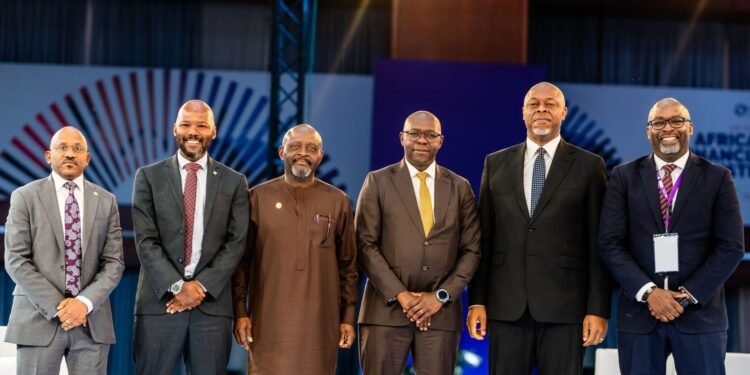Ghanaian cinema — from the homegrown, fast-paced Kumawood productions to the higher-budget Ghallywood attempts — has enormous cultural appeal and diaspora demand.
YouTube promised a democratized distribution channel: instant global reach, ad revenue, and low barriers to entry. Yet, many Ghanaian movies on YouTube either disappear into low-quality uploads, earn little for their creators, or undermine the industry’s traditional revenue streams.
While technical issues, piracy, and limited budgets play roles, a deeper, avoidable cause fuels the problem: pervasive greed that favors immediate gains over sustainable industry growth
Even though a few Ghanaian movie producers are making efforts to tap into the growing popularity of producing films for YouTube and the benefits that come with it, progress remains slow compared to other African movie industries, such as Nigeria’s Nollywood.
While Nollywood continues to dominate the African YouTube movie space with soaring numbers in streams, subscriptions, and revenue, Ghana’s presence on the platform remains minimal, with only a handful of producers attracting modest viewership and earnings.
Actress and producer Xandy Kamel, who has been steadily producing movies for YouTube, believes she knows exactly why Ghana’s film industry has yet to thrive on the platform.
Xandy Kamel did not mince words as she blamed greed and lack of support from within the industry as major stumbling blocks.
According to her, many Ghanaian actors and industry professionals are reluctant to support YouTube productions, often making it difficult for producers to even assemble a cast.
She lamented that local actors sometimes quote exorbitant and unreasonable fees, creating unnecessary barriers for filmmakers trying to work within the typically tight budgets of YouTube productions.
“Making movies for YouTube is difficult in Ghana because even industry persons are not willing to support. If you approach someone to even join your cast, the amount they quote is so huge that you end up questioning how much you are even going to make after putting all the production costs into consideration. When I decided to work on my recent movie, Unseen Beauty, my people were not supportive. They asked for the script when I approached them. After going through it, they quoted huge amounts as their charges.
“They go like, ‘I’m not a YouTuber, but because of you, I’ll do a YouTube job. Just give me GH₵10,000 or GH₵12,000.’” They demand so much for about five or seven scenes. That is why I ended up casting Nigerian actors. They are very considerate. If our own people continue like this, how are we going to gain traction on YouTube when it’s now the main route our counterparts elsewhere are taking to grow their industry?”
Xandy Kamel

The actress stressed that Ghana’s film industry must take a cue from Nollywood, where collaboration is a driving force behind its YouTube success.
“We need to borrow a page from Nollywood’s book. One key lesson is the power of collaboration. When our producers, directors, and other stakeholders come together, pool resources, and work towards creating bigger, higher-quality productions, that’s when we’ll start to see real growth and recognition.
“By adopting this approach, I’m confident we can elevate our industry to new heights. It’s time for us to stop working in silos and start building something greater together. With collective effort and a shared vision, I believe Ghana’s film industry can achieve significant strides and gain the popularity it deserves.”
Xandy Kamel
Some filmmakers, desperate for quick returns, upload full features to ad‑supported YouTube channels or enter agreements that disproportionately favor middlemen.
That short‑term revenue chase undermines theatrical releases, television syndication, and international licensing — channels that generate larger, steadier returns and industry credibility.
By prioritizing immediate ad income, creators forfeit bargaining power and the chance to cultivate a sustainable release window strategy. In effect, the industry cannibalizes itself to chase petty profits today.
Talent, Fee Inflation: Reducing Production Quality and Scalability

When actors, producers, or intermediaries demand outsized up‑front fees without revenue‑sharing, producers are forced to cut corners on script development, production values, and marketing.
The result is a flood of low‑quality films that perform poorly on YouTube and abroad. Audiences quickly learn to skip clichéd or poorly produced titles, reducing the platform’s potential to build loyal followings for Ghanaian cinema.
This rent‑seeking behavior by a few undermines the entire ecosystem’s ability to reinvest in better content.
YouTube’s algorithms reward watch time and frequent uploads. Opportunistic channels exploit this by churning out reuploads or compilations that capture views, driving discovery away from original channels.
Even legitimate creators sometimes game the system — chopping films into chapters, reuploading multiple times, or using clickbait to boost metrics.
These tactics thrive on short‑term gains and degrade the viewer experience, weakening long‑term audience loyalty to Ghanaian cinema.
Push for stronger copyright enforcement domestically and negotiate with YouTube for better tools, priority support, and revenue splits for verified national creators.
Ghanaian cinema’s underperformance on YouTube is not merely a technological or cultural inevitability; it is a consequence of choices driven by greed across the value chain.
When immediate monetization, opportunistic reuploads, and rent‑seeking replace patient investment, collaboration, and rights protection, the industry’s digital prospects dim.
Reversing that trend requires aligning incentives: protecting creators’ rights, educating stakeholders, and building institutions that reward sustainable, high‑quality storytelling.
Only then will Ghanaian movies realize their full digital potential instead of being undone by the very people who should be nourishing them.
READ ALSO: Ghana Pays $1m to University of Memphis to Avert Student Deportation























